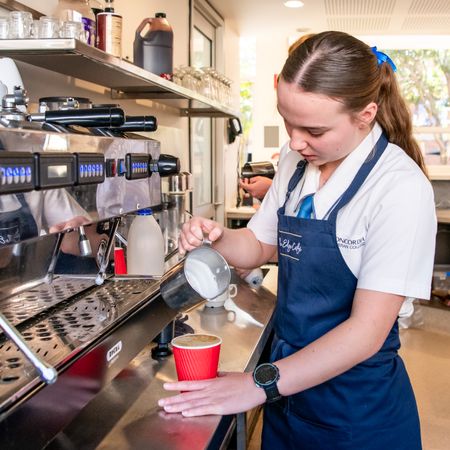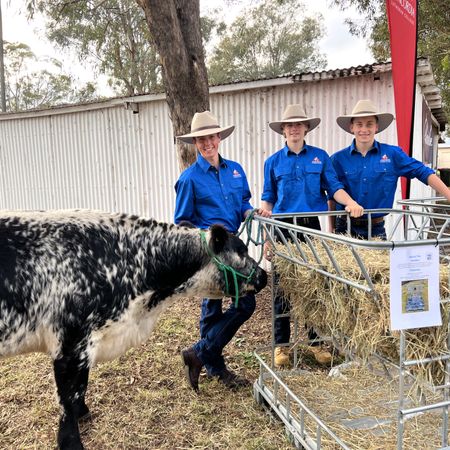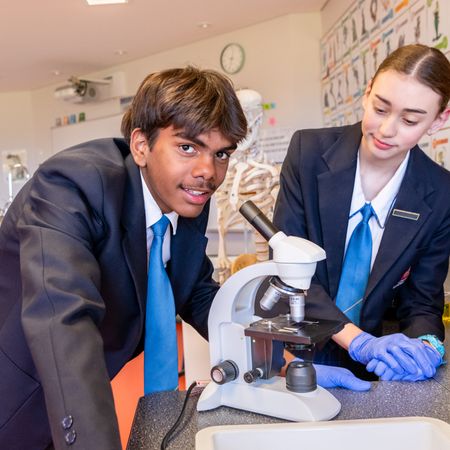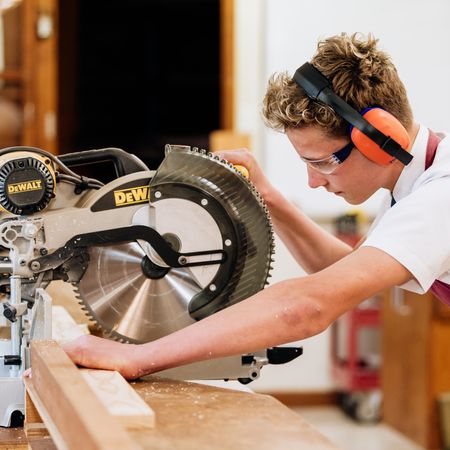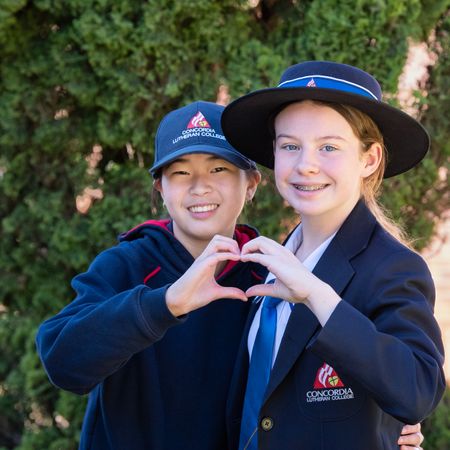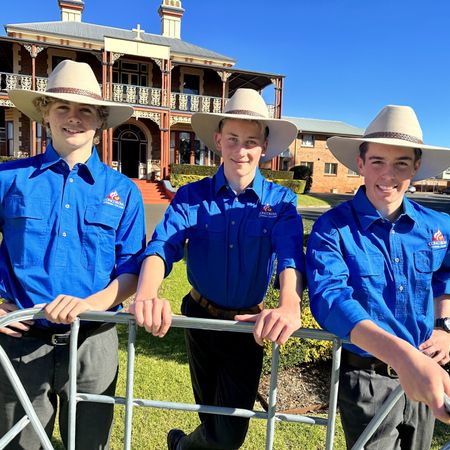The Concordia Difference
Concordia Lutheran College offers a coeducational independent private education that provides engaging learning pathways to develop well-rounded, caring individuals.
Quality Education designed around an exceptional Wellbeing Program
Our curriculum is designed to ignite our students' interest from an early age, cultivating a love of learning that will stay with them throughout their school years. By doing so, we aim to expand and diversify the range of pathways and opportunities available to our students while also improving their educational outcomes. At the heart of our approach is the goal of "Inspiring Lifelong Learners, Critical Thinkers and Caring Citizens in a Christian Community". Concordia provides first-rate facilities and a wealth of academic and co-curricular opportunities to nurture every student's unique potential, regardless of their abilities or interests. Our teachers take the time to understand each student's needs and passions, ensuring that they perform to the best of their abilities in an environment that is nurturing and respectful.
A diverse curriculum provides a variety of Career Pathways
The consistent results of our Year 12 graduates are a testament to the success of the broad education offered at Concordia Lutheran College. Concordia has consistently achieved strong ATAR results. In 2023, 30% of students recorded an ATAR of 90 or higher, 56% of our students had an ATAR of 85 or higher and 60% received one or more VET qualifications. Our students have undertaken a wide variety of career pathways ranging from further tertiary studies in the fields of Health, Creative Arts, Education, Natural & Physical Sciences, Engineering, Management and Law to Trade opportunities in Construction, Plumbing, Electrical and Carpentry.
At Concordia Lutheran College, our mission is to offer a comprehensive curriculum to all our students, taught by exceptional educators.
Our curriculum is tailored to meet the individual needs of our students, and it is delivered through well-planned and intentional lessons that aim to build on foundational knowledge as students progress through the complexity of subject-specific skills and understanding. Concordia embraces an inclusive education, in which teachers know their students, and use data to fine-tune the curriculum to ensure optimal outcomes for all students. Our educators also use technology, project-based learning, and innovative pedagogy to transform learning outcomes for our students. At Concordia Lutheran College, we are committed to providing an engaging and rewarding education that prepares our students for the challenges of the future.
Project Based Learning
Concordia Lutheran College incorporates Project Based Learning as a unique approach to enhance the learning opportunities for our students. The curriculum is designed keeping in mind the Project Based Learning (PBL) approach, where students are encouraged to explore topics in diverse ways, using their individual interests and learning styles. Concordia aims to help students develop their full potential and become independent learners who can be active and valuable members of society.
In PBL, students work collaboratively on meaningful projects that require creative and critical thinking and communication skills to complete complex tasks. They need to apply their understanding of multiple academic disciplines to solve real-life problems. The idea behind this program is to make learning relevant to students so that they can find a purpose for mastering the required skills and concepts.
Project Based Learning is different from conventional school project work, where learning is usually teacher-centered and teacher-directed. In PBL, teachers act as facilitators of learning, and students take on an authentic challenge. They are guided through a series of activities and benchmarks to reach a concluding event.
Concordia employs innovative teaching practices, such as Project Based Learning, to engage students in their learning. The PBL approach helps students develop important '21st-century skills' like communication, collaboration, and creative thinking. It encourages students to think deeply and stretch their thinking so that they can reach their full potential.
Wellbeing
The College’s management of student wellbeing is inspired by the gospel and reflects the love and forgiveness that God shows us every day. Within a restorative practices process, every effort is made to repair the harm that may have been caused and to foster positive relationships moving forward. As we experience God’s forgiveness, we can then pass it on by forgiving others. Forgiveness brings reconciliation and restoration of relationships.
Wherever there is a relationship breakdown, where appropriate, restorative practices are implemented to repair and restore impacted relationships.
The principles and values that underpin our Student Wellbeing Program are:
Pastoral Care - Every student has at least one staff member who knows them well.
Celebration - We provide many opportunities for students to experience the joy of life, learning and relationships.
Christian Values – We value and promote the qualities of forgiveness, reconciliation, humility and self-sacrifice.
Partnerships with Parents – We consistently involve parents when student wellbeing or behaviour issues arise.
Relationships with Staff and Students – We provide opportunities for formal and informal social interactions among staff and students to promote mutual respect.
High Expectations – We present and uphold high expectations of behaviour for students and staff.
A Supportive Learning Environment – We are committed to creating a secure, success-oriented, empowering learning environment.
An Effective Process: Repair. Rebuild. Restore – We apply clear and fair procedures to manage student behaviour in an environment that promotes faith, hope, justice and reconciliation.
Preferred Futures
Have you ever said – ‘I wish I could have just learnt what I wanted to learn at school’ – Well at Concordia we provide just that opportunity called ‘Preferred Futures’.
"Preferred Futures" is a course designed to empower students to envision and work towards a future that is both desirable and achievable. It emphasises the individual growth and development of students within society, focusing on 21st-century skills such as critical thinking, problem-solving, creativity, communication, and collaboration. The course encourages students to imagine and design their preferred future, considering various factors like social, economic, environmental, and technological developments.
Through the use of design thinking, students will identify and work on projects that are meaningful to them and have a positive impact on their communities. The course requires a shift in mindset for both students and teachers, with teachers taking on a mentor/steward role to facilitate a co-learning environment. While teachers may not have all the answers, they will provide support, mentoring, and networking opportunities to help students progress in their projects.
Students are encouraged to choose projects with tangible outcomes that are meaningful, authentic, and engaging. Parents are invited to support their child's project by offering life experiences that can assist them through challenges. The course aims to foster a sense of purpose and empowerment among students as they work towards creating their preferred futures.
